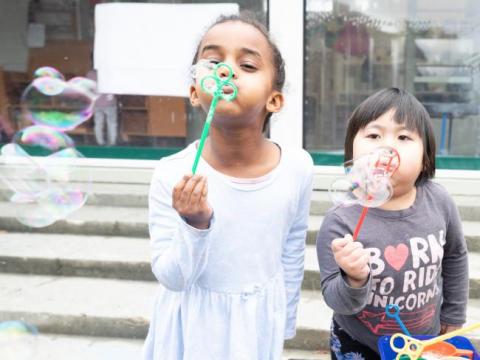Science in the Early Years: Early Childhood and Years 1-4
Published: 12 Apr 2021
This report looks at how well science is led in services and schools, how well science is woven through the curriculum, and how well kaiako/ teachers include science in a responsive curriculum. Each section of this report provides leaders, kaiako, and teachers with reflective questions to consider, which could support improvements. We also identify opportunities for improvement at both the individual service / school level, and for the system.
- Audience:
- Early learning
- Education
- Content type:
- Research
- Topics:
- Science
- Early learning
- Te Ihuwaka | Education Evaluation Centre













